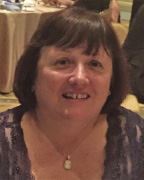In 1990 Herman Daly, one of the early pioneers of ecological sustainability, looked at the problem from a maintenance of natural capital viewpoint. At that time he proposed the following statements; the rate of harvest of renewable resources should not exceed the rate of regeneration, the rate of waste generation from projects should not exceed the assimilative capacity of the environment, and the depletion of the non-renewable resources should require comparable development substitutes for that resource.
Fast forward to 2015 and we in Boston are right in the middle of proving Mr. Daly's theories correct. Boston is a city, which has many beautiful old buildings. Keeping these buildings from moving into a state of decline of competitiveness and usefulness, and causing the property to decrease in value is a full time job. Many of our buildings in the last 25 years have been going through changes to provide better cost effective energy services such as changing out old ineffective equipment, converting from oil to natural gas energy, adding solar energy for electric, using wastewater for landscaping, and implementing good resident recycling programs.
The Mass Save program provides a wonderful menu of energy saving costs and rebates for air conditioners, boilers, refrigerators, and washing machines. Properties can receive up to 50% rebate on a boiler, which is over twenty years old.
Energy costs when borne by the owner can be expensive if not monitored. Oil consumption by a property can be controlled. Log your monthly use for a period of one year. When the spring comes around do, what most large owners do, negotiate the price in the spring for the coming heating season. Monthly readings of gas and electric bills provide excellent information. The usage lines are clearly written. In most cases, a year's worth of usage is listed on every bill. The information should be logged to observe the highs and the lows. Our IREM chapter vendor Jim Christie of Taylor Consulting can help with a good negotiated price for these services, which is far better than the utilities in our area.
Converting to solar is a little more complicated but not difficult. Equipment costs are competitive. Carefully compare the purchase or lease options for the equipment for payback.
It is a known fact water rates are the highest utility in multifamily properties. Maintenance calls on water leaks are a priority. Water saver toilets are the only kind to install now. Boilers are cost effective for domestic hot water. Checking pools for pump leaks and interior leaks can save as much as $1,000 over a season. Again, do your due diligence and keep track of your consumption. The towns and cities meter these systems. However, it is up to you to make sure your property charges are correct. Many towns and cities like Kingston take the gray water, which has been filtered, and sell it to a local golf course.
Recycling is the cry of the South Shore towns. Many towns provide the bins for recycling disposal. Kingston receives over $40,000 in reimbursement payments for recycling. The city of Quincy picks up recycle bins once a week reducing the trash bill to Quincy Condominiums by 50%.
Property owners have now embraced cell towers on their buildings and on their properties for a good rental payments. Going forward, wind turbines should be explored and analyzed for sustainability. My good friend Mary O'Donnell can help you with wind turbines and solar panels.
Keeping track of the numbers and best vendors is easy now with the NEW Sustainability software and program documents, which are provided by IREM National for members and non-members. I would suggest taking a peak on our IREM National website.
Colleen Costa, CPM, ARM, is the 2015 IREM Boston president and president and principal of CPC Management, LLC, Kingston, Mass.
Tags:
Presidents message: Sustainability and our Boston market
August 06, 2015 - Owners Developers & Managers
 (1).png)








